Breast Reconstruction in Budapest
Search and Compare the Best Clinics and Doctors at the Lowest Prices for Breast Reconstruction in Budapest

Find the best clinics for Breast Reconstruction in Budapest
With Medijump you can browse 2 facilities offering Breast Reconstruction procedures in Budapest. The cheapest price available is $925 in Budapest. And for the cheapest price globally, prices start from $477 in India.
Breast Reconstruction in Hungary
Price: $ 925
Breast Reconstruction in Budapest
Price: $ 925
India offers the best prices Worldwide
Price: $ 477
Premium Plastic Surgery Clinic - Budapest, located in Central Budapest, Budapest, Hungary offers patients Breast Reconstruction procedures among its total of 49 available procedures, across 9 different specialties. The cost of a Breast Reconstruction procedure starts from ฿269,000, whilst the national average price is approximately ฿151,145. All procedures and treatments are undertaken by the lead specialist at the Clinic, and they are not accredited by any recognized accreditations institutes
Elite Clinic, located in Central Budapest, Budapest, Hungary offers patients Breast Reconstruction procedures among its total of 26 available procedures, across 1 different specialties. The cost of a Breast Reconstruction procedure ranges from £726 to £1,210, whilst the national average price is approximately £3,296. There are many specialists available at the Clinic, with 6 in total, and they have multiple recognized accreditations, including: EBOPRAS - European Board of Plastic Reconstructive and Aesthetic SurgeryESPRAS - European Society of Plastic, Reconstructive and Aesthetic SurgeryÁNTSZ - National Public Health and Medical Officer ServiceMagyar Plasztikai Helyreállító és Esztétikai Sebész Társaság
Compare Before & After Photos of _procedure_photos.phpBreast Reconstruction
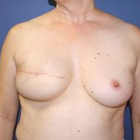
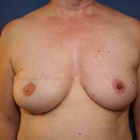
Front view
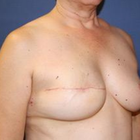
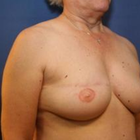
Half-side view
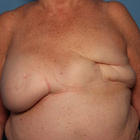
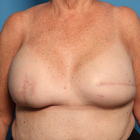
Front view
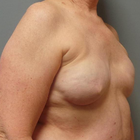
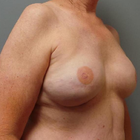
Half-side view
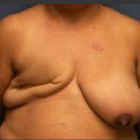
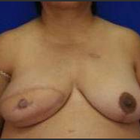
Front view
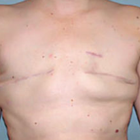
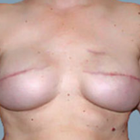
Front view
WHY US?
At Medijump, we're making medical easy. You can search, compare, discuss, and book your medical all in one place. We open the door to the best medical providers worldwide, saving you time and energy along the way, and it's all for FREE, no hidden fees, and no price markups guaranteed. So what are you waiting for?

Free

Best Price

Widest Selection

Risk-Free
What you need to know about Breast Reconstruction in Budapest
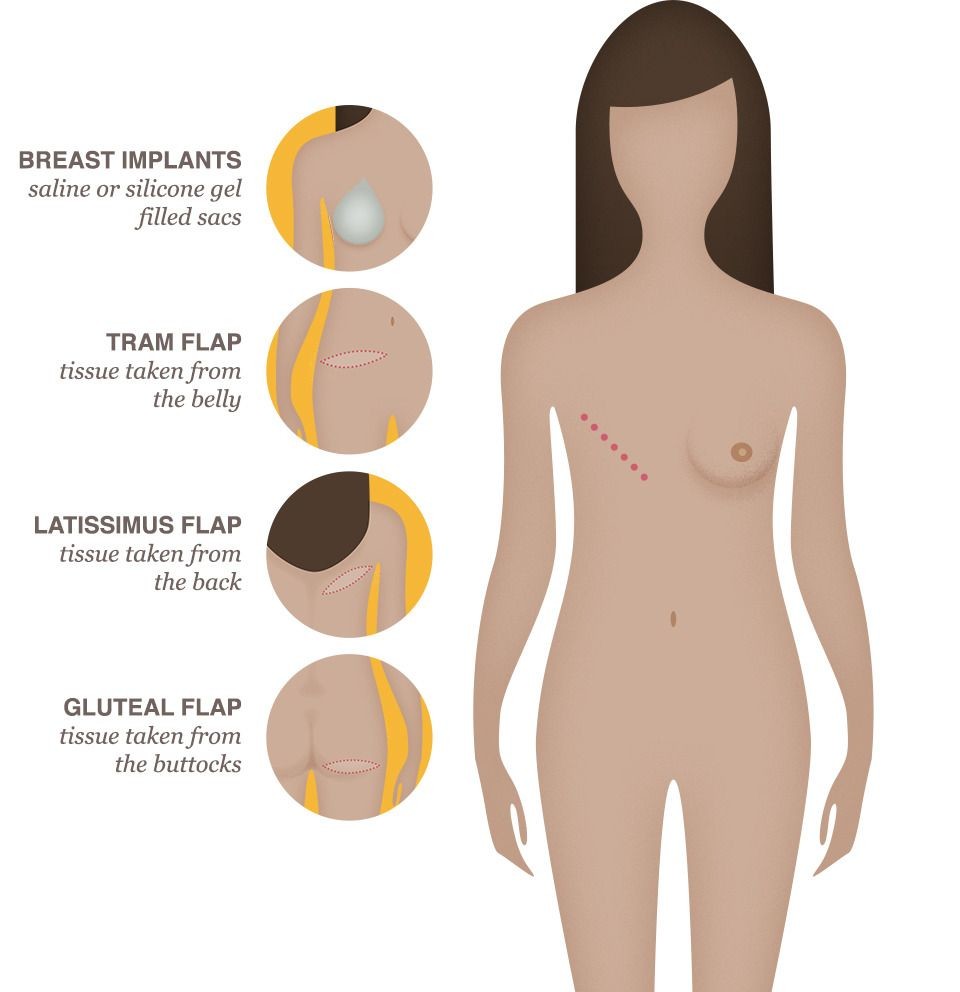
Breast reconstruction is a significant surgery undertaken to rejuvenate the physical form of a woman's chest after losing one or both breasts to cancer or another disease. In Budapest, medical centres are well-equipped with top-tier talent in plastic surgery to facilitate this intricate procedure. Every woman's journey is different, and her treatment plan is personalized, considering her unique circumstances and needs.
It's heartening to know that breast cancer treatments like chemotherapy or radiation therapy aren't impeded by reconstruction. Moreover, this surgery doesn't spike the risk of cancer coming back. Undeniably, breast reconstruction is a major surgery with inherent risks, including chances of infection, complications with wound healing, and potential dilemmas related to implants.
What is the cost of Breast Reconstruction in Budapest?
Undergoing surgery like Breast Reconstruction brings along a financial commitment. The expense varies extensively, depending on many factors like the complexity of the procedure, the medical professional performing the surgery, the hospital's facility, and the region, amongst others. Generally, the cost might range between $15,000 to $50,000, including multiple surgeries or intricate techniques within this estimate.
Thankfully, in many cases, insurance plans cover such surgical procedures, especially given mandates like the Women's Health and Cancer Rights Act of 1998 in the U.S. Still, out-of-pocket expenses associated with co-payment or deductibles can add up. It's recommended to navigate these aspects with your insurance provider and your chosen healthcare facility in Budapest.
What does a Breast Reconstruction Procedure Involve?
Breast reconstruction generally happens in stages, starting with the most complex first, which may either occur at the same time as the mastectomy or later, based on the individual’s specific health conditions or treatment plan.
Two main techniques are employed in breast reconstruction. One is the use of an implant, saline, or silicone to recreate the breast shape. Two, autologous or flap reconstruction where tissue from the patient’s body like the abdomen or thigh is relocated to recreate the breast shape. The method selected is dependent on individual factors like the patient’s health, personal choice, cancer type, and stage.
After the primary surgery and post an adequate healing period, the surgeon performs a second procedure to recreate the nipple and areola. Later, to give it a natural look, the nipple-areola complex is tattooed. Remember that although it is a common procedure, complications might arise involving reaction to anaesthesia, bleeding, infection, poor healing or the need for further interventions.
How Long Should I Stay in Budapest for a Breast Reconstruction Procedure?
Post-breast reconstruction surgery, patients typically stay in the hospital for two to five days. However, if the reconstruction was done immediately after the mastectomy, the stay could extend from three to six days.
Overall, a patient should expect to remain in Budapest for approximately two weeks post-surgery. This allows enough time for necessary follow-ups and to address any complications, if they arise. As with any major surgical procedure, do not hasten the healing process.
What's the Recovery Time for Breast Reconstruction Procedures in Budapest?
The recovery timeframe for breast reconstruction procedures in Budapest varies from patient to patient. Generally, for implant-based procedures, patients may take about four to six weeks to recuperate before they return to normal routines. For more complex autologous techniques, particularly those using abdominal tissue, patients might require six to eight weeks for recovery.
Recovering patients need to temper their activities during this period. Avoid lifting heavy objects and defer strenuous exercise until your physician gives a clear signal. Medical assistance should be promptly sought if any discomforting symptoms like chronic pain, redness or swelling surface.
What's the Success Rate of Breast Reconstruction Procedures in Budapest?
Medical success cannot just be measured in terms of complication-free postoperative progress or longevity of implants used in breast reconstruction. Patient satisfaction with their surgery, their psychological well-being following the operation, their perception of body image, and their quality of life post-surgery are equally important factors to consider. Studies indicate that between 85% to 90% of women who have undergone breast reconstruction are satisfied with the long-term results.
In Budapest, dedicated hospitals and healthcare facilities strive to offer high-quality treatment, ensuring the best possible surgical outcomes using progressive technology and experienced professionals. Still, everyone's response to surgery varies, and outcomes depend on factors such as overall health, age, body type, and compliance with surgical advice.
Are there Alternatives to Breast Reconstruction Procedures in Budapest?
Indeed, there are alternatives to breast reconstruction in Budapest. The journey of every woman is unique and how she chooses to deal with the loss of a breast, or both, is a highly personal decision. Alternatives include:
- Breast Prostheses or Forms: They are silicone forms that imitate the appearance and feel of natural breast tissue. They come in diverse sizes, shapes and colours to closely match the woman's skin tone.
- Flat Closure: In this method, the surgeons sew up the chest wound smoothly, without constructing a breast mound. This option appeals to women who choose not to have more surgeries or body implants.
- Opting not to undergo reconstruction at all, also termed as "going flat: This method exhibits the woman's choice to live comfortably with her new body shape without artificial substitutes or further surgeries. It is a fully personal decision deserving respect and support.
Each of these options has pros and cons, and the choice depends on the woman’s personal preference, health status, lifestyle, and perception of her body. Regardless of the choice, it’s important to regularly monitor breast health and engage in practices that promote overall wellness.
What Should You Expect Before and After the Breast Reconstruction Procedure?
Before the surgery, comprehensive discussions with the surgeon will take place to understand treatment objectives, outcomes, and possible complications. Preoperative tests, lifestyle modifications, and nutritional advice may form a part of the preparatory process.
Postoperative care is equally important: discomfort, swelling, and bruising are normal and subside over time. Pain management strategies will be provided to help you manage discomfort effectively. Your surgeon will provide personalised guidance on caring for your surgical site, usage of medications, and physical activities.
What sort of Aftercare is Required for Breast Reconstruction Procedures in Budapest?
The following points should be considered post-operation:
- Follow the instructions given by your doctor and take your medicines as and when prescribed.
- Consult a nutritionist for a diet plan. A healthy diet helps you recover faster.
- Do not wear a padded or underwire bra until allowed by your doctor.
- Use surgical bras in the early few days after the surgery.
- Avoid excessive unnecessary movement of your breasts.
- Do not lift heavy objects and children - it could stretch on your stitches.
- Change your bandage whenever it gets dirty. Germs can cause infection.
- Do not take a bath when the bandages are still intact. A wet bandage can also be the cause of infection.
- Abstain from sexual activity for at least 6 weeks.
- Take rest - give yourself time to recover.
How Do I Prevent Cancer from Recurring?
Preventing cancer recurrence largely revolves around a balanced, healthy lifestyle coupled with regular medical check-ups. Regular exercise, maintaining a healthy weight, and eating nutritiously can contribute to cancer prevention. Smoke cessation and limiting exposure to secondhand smoke are crucial for both prevention and postoperative recovery.
Regular breast self-examinations, as well as mammograms and follow-up visits, are critical for early detection of any recurrence. Stress management techniques like yoga, meditation, and spending time in nature can also play an essential role in overall health.
Your medical team in Budapest is there to support you, offering advice tailored to your individual health status and medical history. Remember, proactive health checks are key to maintaining overall health and preventing the recurrence of diseases like cancer.
What is the ideal time to have Breast Reconstruction surgery after a Mastectomy in Budapest?
The decision regarding when to have Breast Reconstruction following a Mastectomy in Budapest is largely based on the individual's health status, treatment plan, personal preferences, and discussions with the oncology team. Breast reconstruction can be done at the time of mastectomy (immediate reconstruction) or at a later date (delayed reconstruction). Immediate reconstruction might offer psychological benefits and less overall surgery since both procedures are done together. Yet, if additional treatments such as radiation therapy are required post-mastectomy, opting for delayed reconstruction could be advisable to avoid risks posed by radiation to the new construct.
Remember that deciding on the timing of breast reconstruction is a personal choice and should be made in consultation with your healthcare providers. They can provide specific guidance based on your health condition and treatment plan.
How Will Breast Reconstruction in Budapest Impact My Routine Mammograms and Breast Cancer Detection?
Breast reconstruction surgery may impact the way routine breast cancer screenings are conducted. After a mastectomy with or without reconstruction, women usually don't need routine screening mammograms on the treated side since all breast tissue has been removed. However, they would need routine mammograms for the untreated breasts.
If you've had reconstruction using your own body tissue, your surgeon or oncologist will guide you on whether or not you'll require mammograms on the reconstructed breast. Remember, mammograms can still be performed on reconstructed breasts, and self-breast exams should be a regular part of your health routine.
Whilst the information presented here has been accurately sourced and verified by a medical professional for its accuracy, it is still advised to consult with your doctor before pursuing a medical treatment at one of the listed medical providers
No Time?
Tell us what you're looking for and we'll reachout to the top clinics all at once
Enquire Now

Popular Procedures in Budapest
Prices Start From $497

Prices Start From $208

Prices Start From $834

Prices Start From $500

Prices Start From $93

Prices Start From $85

Recommended Medical Centers in Budapest for Breast Reconstruction

- Interpreter services
- Translation service
- Religious facilities
- Medical records transfer
- Medical travel insurance
- Health insurance coordination
- TV in the room
- Safe in the room
- Phone in the room
- Private rooms for patients available

- Interpreter services
- Translation service
- Religious facilities
- Medical records transfer
- Medical travel insurance
- Health insurance coordination
- TV in the room
- Safe in the room
- Phone in the room
- Private rooms for patients available

- Interpreter services
- Translation service
- Religious facilities
- Medical records transfer
- Medical travel insurance
- Health insurance coordination
- TV in the room
- Safe in the room
- Phone in the room
- Private rooms for patients available

- Interpreter services
- Translation service
- Religious facilities
- Medical records transfer
- Medical travel insurance
- Health insurance coordination
- TV in the room
- Safe in the room
- Phone in the room
- Private rooms for patients available

- Interpreter services
- Translation service
- Religious facilities
- Medical records transfer
- Medical travel insurance
- Health insurance coordination
- TV in the room
- Safe in the room
- Phone in the room
- Private rooms for patients available

- Interpreter services
- Translation service
- Religious facilities
- Medical records transfer
- Medical travel insurance
- Health insurance coordination
- TV in the room
- Safe in the room
- Phone in the room
- Private rooms for patients available

- Interpreter services
- Translation service
- Religious facilities
- Medical records transfer
- Medical travel insurance
- Health insurance coordination
- TV in the room
- Safe in the room
- Phone in the room
- Private rooms for patients available

- Interpreter services
- Translation service
- Religious facilities
- Medical records transfer
- Medical travel insurance
- Health insurance coordination
- TV in the room
- Safe in the room
- Phone in the room
- Private rooms for patients available

- Interpreter services
- Translation service
- Religious facilities
- Medical records transfer
- Medical travel insurance
- Health insurance coordination
- TV in the room
- Safe in the room
- Phone in the room
- Private rooms for patients available

- Interpreter services
- Translation service
- Religious facilities
- Medical records transfer
- Medical travel insurance
- Health insurance coordination
- TV in the room
- Safe in the room
- Phone in the room
- Private rooms for patients available
Breast Reconstruction in and around Budapest
About Budapest
Budapest is the capital of Hungary and with A population of over 1.7 million, it is the most populous city in the country. Budapest is made up of three unified cities, Buda and Óbuda on the west bank of Danube and Pest on the east bank. The city is known as one of the most beautiful cities in Europe. Its historic monuments, charming architecture, healing thermal waters, wonderful food, and lively nightlife draw millions of people each year.
Nowadays, an increasing number of people have chosen Budapest as their medical tourism destination thanks to its well-known excellent healthcare. Dental treatments along with cosmetic and plastic surgery are the most popular treatment that attracts medical tourists to Budapest. Premium Plastic Surgery Clinic and Dr. Molnar Clinic are two of the highest ranked medical facilities in Budapest. Medical tourists come to Budapest for the following reason:
- Experienced, highly qualified doctors and surgeons.
- The best and most modern medical facilities.
- A friendly environment with English speaking staff.
- Medical treatment at significantly lower prices.
- Beautiful city to enjoy while recovering.
Popular Areas in Budapest
There are many places to explore in Budapest. The city is home to several UNESCO World Heritage Sites, Danube Panorama and Castle district is the most beautiful and romantic parts of Budapest with countless historical monuments; Andrássy Avenue and Heroes Square are home to the most impressive buildings such as the State Opera House; The banks of the Danube river is a great place to see many of Budapest’s best sights.
The Hungarian Parliament Building, one of the largest building in Hungary, was designed in the Gothic Revival style. The building gives an enchanting view from every angle, especially from the other side of Danube when tourists can see the whole building. Tourists can also go to Castle Hill, one of the most visited places in Budapest with beautiful buildings that date back to the 14th and 15th centuries.
To escape the city, visit City Park where you will find a zoo, a replica of Transylvanian Vajdahunyad Castle, and the Széchenyi Bath. For visitors who wish to shop, try Ecseri Flea Marker, a fantastic flea market to find a bargain.
Weather and Climate in Budapest
Budapest has four distinct seasons.
- Summer in Budapest tends to be nice and warm with an average temperature ranging between 23 to 28 °C (73 – 82 °F). Summer lasts from May until mid-September. Heavy showers usually occur in May and June. Many tourists choose the summer to visit the city.
- The autumn in Budapest has moderate temperature with little rains and long sunny days, autumn starts from mid-September to late October.
- Winter can be really cold with only a little sunshine; the average temperature is 3 to -7 °C (27 to 19 °F). Winter lasts from November to March.
- Spring in Budapest is said to be one of the most beautiful times in the city when the green spaces are in full bloom. Spring starts from March to April and sees a rapid increase in the temperature.
Getting Around in Budapest
Ferenc Liszt International Airport (commonly referred to as “Ferihegy”) is the main airport in Budapest and in Hungary. The airport connects Budapest with many cities around the globe, mainly Europe, Africa, the Middle East, and North America. There are several budget airlines that operate flights in this airport such as Wizz Air, EasyJet, and Ryanair.
To get to the city center, tourists can take a taxi or a bus. Taxis are relatively cheap, always make sure to use regulated taxis to ensure your safety. The fare for taxis is 300 HUF/Km (1.03 USD). A ride to Budapest from Ferenc Liszt International Airport usually cost around 7200 HUF (24.8 USD).
The bus is the cheapest option to get to the city center. Budapest’s airport shuttle bus (100E) connects Ferenc Liszt Airport with the city center (Deák Ferenc Square). The trip takes about half an hour. Purchase a ticket at the airport post office, BKK customer points in arrivals halls, the newsagents, and from the ticket machine at the bus stops. Bus drivers also sell tickets for 450 HUF (1.60 USD). It is better and simpler to purchase daily or multi-day passes which are valid for an unlimited number of trips within their validity periods. The multi-day pass costs 1650 HUF (6.15 USD).
The best way to explore Budapest is by walking because most tourist sites are within walking distance. An alternative to walking is cycling. Budapest offers a bicycle sharing system called BuBi. Metro, trams, trolleybuses, buses, and the HÉV suburban train line are also available to get around Budapest.
Tourist Visas in Budapest
Citizens of the European Union, the United States, and Canada can enter and stay in Hungary without a visa for up to 90 days. Citizens of EU/EEA members and 33 countries are granted visa-free entry for a maximum period of 90 days. The only condition is to have a passport valid for at least three months. Other foreign citizens need to apply and obtain a visa before entering the country.
As a part of the Schengen Agreement, holders of the Schengen Visa do not need to apply for a new visa. The Schengen Visa is only issued to citizens of countries who are required to obtain a visa before entering Europe.
Additional Information
- Local Currency: The official currency is the Hungarian Forint (HUF). 1 USD is equivalent to 290 HUF.
- Money & Payments: Tourists can withdraw money from ATMs. Credit cards (mainly Visa, MasterCard, and American Express) are accepted in restaurants, hotels, and even most taxis. There are several hotels and guesthouses that will accept euros. Tipping is always appreciated but not necessary.
- Local Language: The official language is Hungarian and is spoken by most of the population. Most people, especially in tourist areas, will know sufficient English.
- Local Culture and Religion: Budapest is home to one of the most populous Christian communities in Central Europe. Judaism is also a significant religion.
- Public Holidays: Budapest celebrates Christian holy days as in the rest of Hungary. The city hosts many festivals around the year such as Budapest Spring Festival, Budapest Easter Festival, Music Festival in Spring, as well as Food and Frink Festivals. The date for these festivals may differ from year to year.
Popular Searches
- Plastic Surgery in Thailand
- Dental Implants in Thailand
- Hair Transplant in Thailand
- Breast Augmentation Thailand
- Gastric Sleeve in Thailand
- Gender Reassignment Surgery in Thailand
- Laser Hair Removal in Bangkok
- Botox in Bangkok
- Dermatology in Bangkok
- Breast Augmentation in Bangkok
- Coolsculpting in Bangkok
- Veneers in Turkey
- Hair Transplant in Turkey
- Rhinoplasty in Turkey
- Stem Cell Therapy in Mexico
- Rhinoplasty in Mexico
- Liposuction in Mexico
- Coolsculpting in Tijuana
- Rhinoplasty in Korea
- Scar Removal in Korea
- Gastric Sleeve in Turkey
- Bone Marrow Transplant in India
- Invisalign in Malaysia
- Plastic Surgery in the Dominican Republic
- Tummy Tuck in the Dominican Republic
- Plastic and Cosmetic Surgery in Poland
- Rhinoplasty in Poland
- Hair Implant in Poland
- Dental Implants in Poland
- IVF in Turkey

